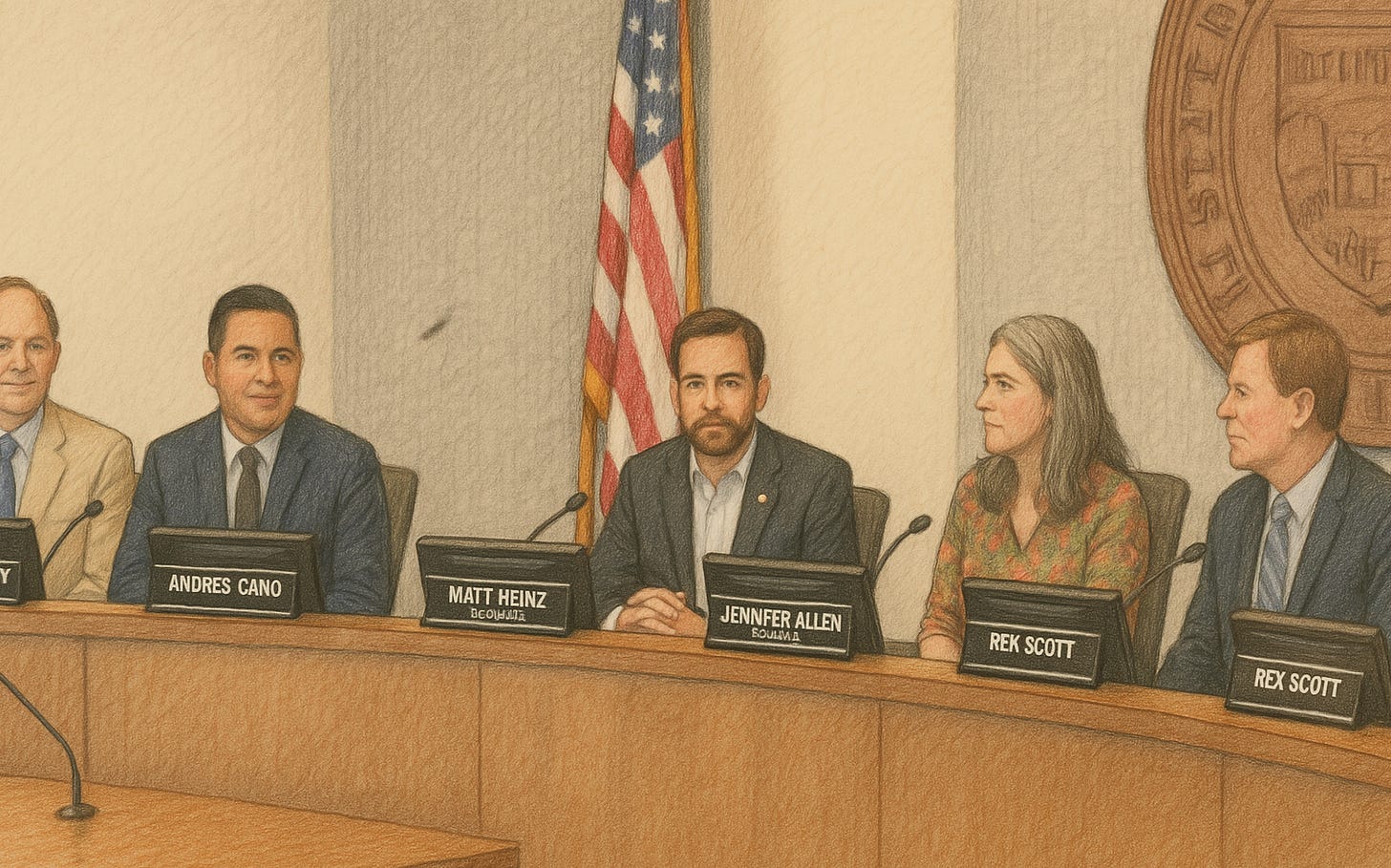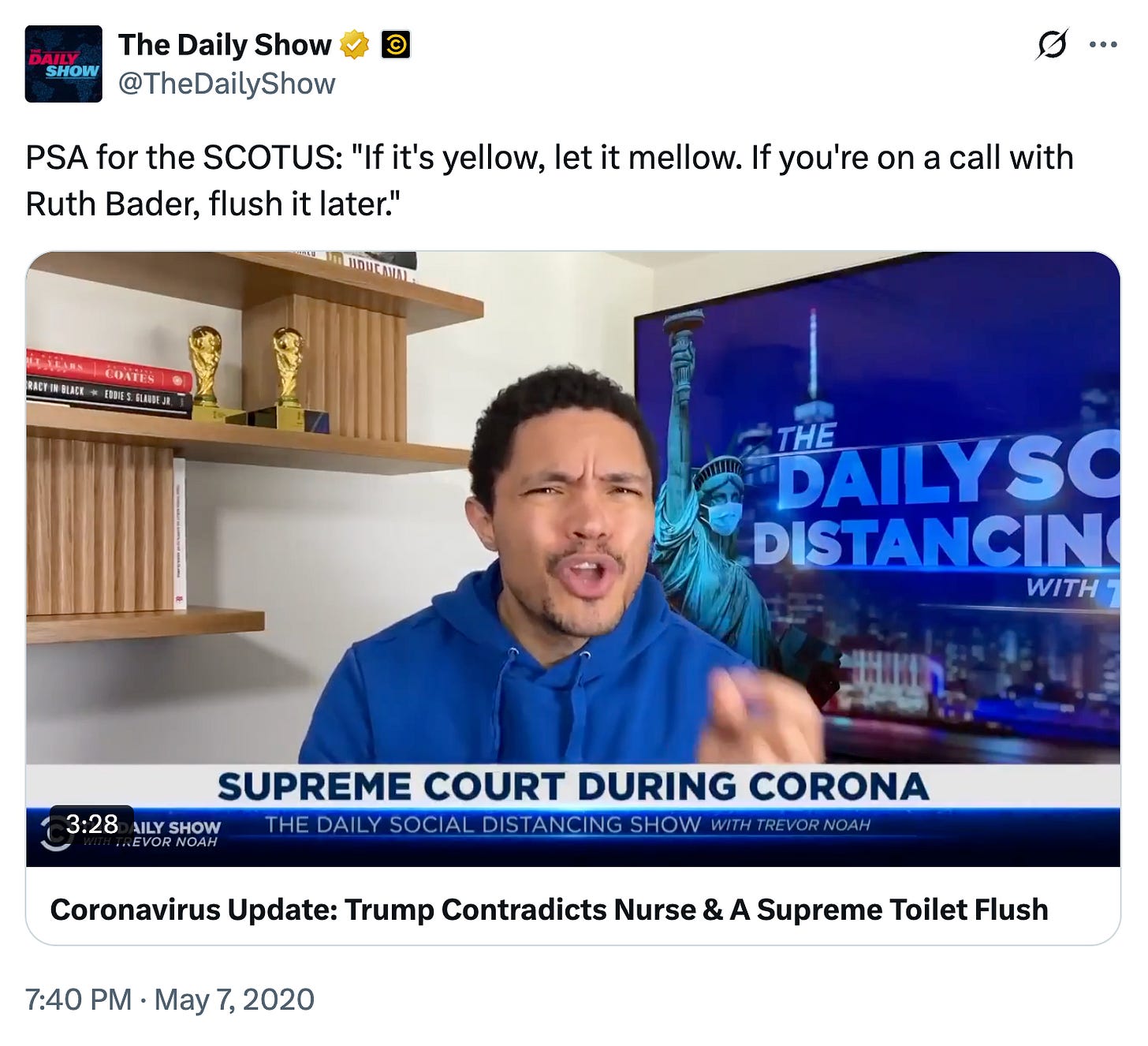Affordable housing plan postponed again
It will come back … Campaign ad season begins … And what was that sound?
The biggest and most ambitious plan to support affordable housing in Pima County was once again tabled for two weeks by a slim majority of the Pima County Board of Supervisors.
If you're experiencing déjà vu, it's because this marks the third time the Board has postponed a vote on Supervisor Matt Heinz’s proposal to raise property taxes to bring in roughly $225 million for affordable housing construction over the next decade.
Although Heinz had recently revised the idea to avoid increasing property taxes in its first year, Supervisors Andrés Cano, Steve Christy, and Rex Scott each raised concerns about the plan during Tuesday’s meeting — with Christy clearly signaling he would not support it.

Earlier this month, County Administrator Jan Lesher reported that the $11 million the County has invested in various affordable housing projects has spurred significant private investment in Pima County.
“The first $11 million of annual gap funding investment (for affordable housing) has leveraged another $422.5 million towards development for a leverage ratio of over 38-to-1,” Lesher wrote in a memo to the Supervisors.
There wasn’t a single, unified criticism of Heinz’s proposal, which his office modified last week in an effort to win support from the board. Instead, opponents mostly argued they needed more time to study the proposal.
Earlier in the meeting, Christy read aloud the responsibilities of the Board of Supervisors as defined by state statute to argue that affordable housing is not an explicitly assigned duty of the Board.
Supervisor Jen Allen, who supports the proposal, pushed back on Christy’s interpretation, pointing out that he did not quote the entire provision from the Arizona Revised Statutes.
“It includes additional language that states the county should ‘do and perform all acts necessary to enable the county to participate in the Economic Opportunity Act of 1964 as amended, which calls for facilitating education, health, employment and general welfare for impoverished Americans,” Allen said.
However, Christy concluded his remarks by simply stating there had not been sufficient public outreach on the matter.
“The public has no clue. This is the first time we've heard most of these proposals today. And I think the public has the right to take its time and find out what's going on with their tax dollars,” Christy said.
Despite Christy’s complaints, the documents have been public for more than a month and local press — including the Tucson Agenda — have been writing about this for several weeks.
Cano attempted to advance the proposal with a detailed, friendly amendment, but Chief Civil Deputy Attorney Sam Brown ruled it too complex to be considered as a verbal amendment.
Cano clarified that although he preferred a two-week delay to refine the proposal, he ultimately supports its goals.
“I want to make thoughtful decisions as a county supervisor, as somebody who is raised by a single mom in Section 8 housing, do not believe for one second that I am not trying to get us to the point where we can get there,” he said.
Chairman Scott supported a motion to delay the vote until the Supervisors could hear from the regional Affordable Housing Commission, although the motion failed.
Heinz, who remained open to amendments throughout the lengthy discussion, argued that waiting for feedback from a specific commission was unnecessary, pointing out that the county’s own housing commission already supported the plan.
“Okay, that's ridiculous” Heinz said. “I mean, we’ve heard from our own housing commission that they desperately need funding and we are ignoring them. They voted overwhelmingly to ask us for funding. We did PEEPs with no plan, $10 million for early childhood education, which I … I supported.”
The proposal is scheduled to return — again — at the June 3 meeting.
When it does come back, we’ll be right there covering it for you. If you like steady coverage of your local government, then click that button!
Ladies and gentleman of southern Arizona, welcome to the first political campaign ad on TV this year.
It will not be your last.
Starting today, former state Rep. Daniel Hernandez is spending a six-figure sum on a series of ads in the Tucson and Yuma broadcast markets, as well as various digital channels, in his run to secure the Democratic nomination in the Congressional District 7 special election.
His pitch? He’s not afraid to call out MAGA Republicans.
“I come from a big, loud Mexican family. So when I need to, I speak up,” Hernandez says from the family dinner table, where his mom and two sisters (Democratic state Reps. Alma and Consuelo Hernandez) speak over him.
Five Democrats are running in the special election. The primary is on July 15.
And in this deep-blue district — which Congressman Raúl Grijalva represented for more than two decades before his death earlier this year — Democrats are basically guaranteed to win the September general election.
Back to work: Tucson Democratic Rep. Kevin Volk is on vacation, and he’s not happy about it. The first-term lawmaker says the Legislature is taking a break while important issues like water, child care, and education need attention, he wrote in an op-ed in the Tucson Sentinel.
“Let me be clear: this isn’t a well-earned break,” Volk wrote. “It’s a paid vacation taken right before the most important deadline of the year – we need to pass a budget by June 30, or the state government shuts down.”
A long way from home: Tucson Mayor Regina Romero is in Qatar this week for an economic forum, the Arizona Daily Star’s Charles Borla reports. She left Friday and will be back Thursday, meaning she’ll miss Tuesday’s City Council meeting and Thursday’s joint meeting of the Pima Association of Governments and the Regional Transportation Authority. The trip to Qatar was sponsored by Bloomberg Philanthropies and city officials said the taxpayer cost is minimal.
Tough subject: The new state law that bans encampments on college campuses got mixed reviews at the University of Arizona, per the Star’s Prerana Sannappanavar. A Jewish Israeli-American student said the new law “strikes a critical balance” between free speech and empowering universities to address “harassment and intimidation.” A professor said the law will lead to more conflating of pro-Palestinian sentiments with anti-Semitism.
Hard work paying off: Two Tucson-area students earned full-ride scholarships to the UA, the Arizona Luminaria’s Shannon Conner reports. Jeanette Mendoza, a part-time mariachi singer and violinist, and Tae Esperanza Cooper, who has taken classes at Pima Community College since she was in the seventh grade, earned Flinn scholarships, one of the most prestigious awards in Arizona.
For us, every new paid subscription is a prestigious award.
Tough job: Cochise County, where election conspiracies often run wild, has a new elections director, KVOA’s Zachary Jackson reports. Melissa Avant is taking the reins after working in departments like health and finance, as well as serving on the Sierra Vista Unified School District Governing Board.
We all knew this day would come. Businesses are posting job openings, but not for people.
This week in the A.I. Agenda: Companies that only want “resumes” from AI agents — autonomous programs that can make a series of complex decisions to complete tasks.
A decade ago, a YouTube video titled “Humans Need Not Apply” painted a picture of a future where automation and AI will render human jobs obsolete.
Fast forward to 2025, and this vision is unfolding with remarkable accuracy.
“No office politics. No coffee machine small talk. Just pure algorithmic productivity.”
That’s the tagline for JobForAgent.com, the first job board for autonomous AI agents. The postings on the site look familiar at first glance — researcher, podcast editor, SEO researcher, but there’s one key difference: only bots can apply.
Meanwhile, Congress might take over regulating AI completely, a college student wants her tuition money back after she caught her teacher using AI, and much, much more.
Subscribe to the A.I. Agenda today and you’ll get the scoop in your inbox bright and early tomorrow morning.
Well, at least it wasn’t the infamous Supreme Court toilet flush.
A loud noise drowned out the audio feed at yesterday’s Pima County Supervisors meeting, briefly interrupting Supervisor Steve Christy’s arguments against Supervisor Matt Heinz’s new affordable housing tax increase proposal.
Christy, the lone Republican on the board, joked that Heinz paid for the brief interruption.
“Check is in the mail,” Heinz shot back.










